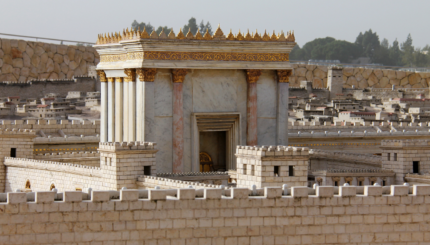Over at his blog, Rabbi Andy Bachman has posted a beautiful tribute to his teacher, the late Rabbi A. Stanley Dreyfus, who passed away this week.
It’s a moving rumination on a very personal relationship, but in its respect for the rebbe–talmid (master-student) relationship — a relationship forged with the help of Judaism’s great texts and teachers — it also exemplifies the beauty of mesorah, tradition.
Ours is a world that privileges novelty; so mesorah is not an idea that has much currency. But this is unfortunate.
Mesorah is not merely “the old” ways and teachings — it is the past, present, and future in conversation and dialogue.
Last week, I heard Leon Wieseltier give a lecture on the importance of the Hebrew language. Wieseltier leveled a devastating critique on the American Jewish community.
There is still another [reason] for the relative thinness of Jewish culture in America. This impediment to our taking our rightful place in the chain of our tradition has everything to do with Jewish languages and Jewish books, and with the changing relationship of Jews to Jewish languages and to Jewish books…
Measuring ourselves by the standard of our tradition, we should note immediately, one distinction of the American Jewish community; and it is with this distinction that I have come here to trouble you. The distinction that I have in mind is the illiteracy of American Jewry. I mean, its Jewish illiteracy. The American Jewish community is the first great community in the history of our people that believes that it can receive, develop, and perpetuate the Jewish tradition not in a Jewish language. By an overwhelming majority, American Jews cannot read or speak or write Hebrew; or Yiddish. This is genuinely shocking. American Jewry is quite literally unlettered. The assumption of American Jewry that it can do without a Jewish language is an arrogance without precedent in Jewish history. And this illiteracy, I suggest, will leave American Judaism and American Jewishness forever crippled and scandalously thin.
While many in the room responded negatively to Wieseltier’s remarks (perhaps to its surface elitism), there is a good piece of musar (ethical rebuke) here.
Judaism can change — perhaps must change — but the past must forever be a mediating force in our present, and to have the past as part of our repertoire, we must be able to access it competently.
This is a challenge, of course.
The past is foreign, and for many of us, Judaism — even modernized and in English — is foreign enough.
But as is clear from Rabbi Bachman’s post — and from Rabbi Dreyfus’ model — mesorah at its best can inspire study, commitment, fulfillment, and most importantly and paradoxically, the drive to push mesorah onward and into the future.


